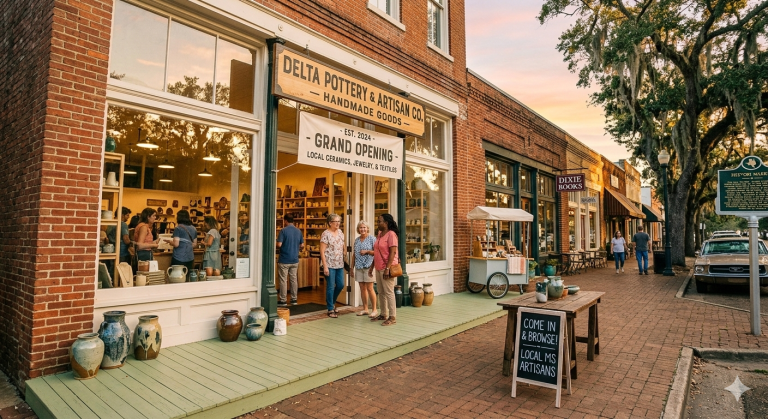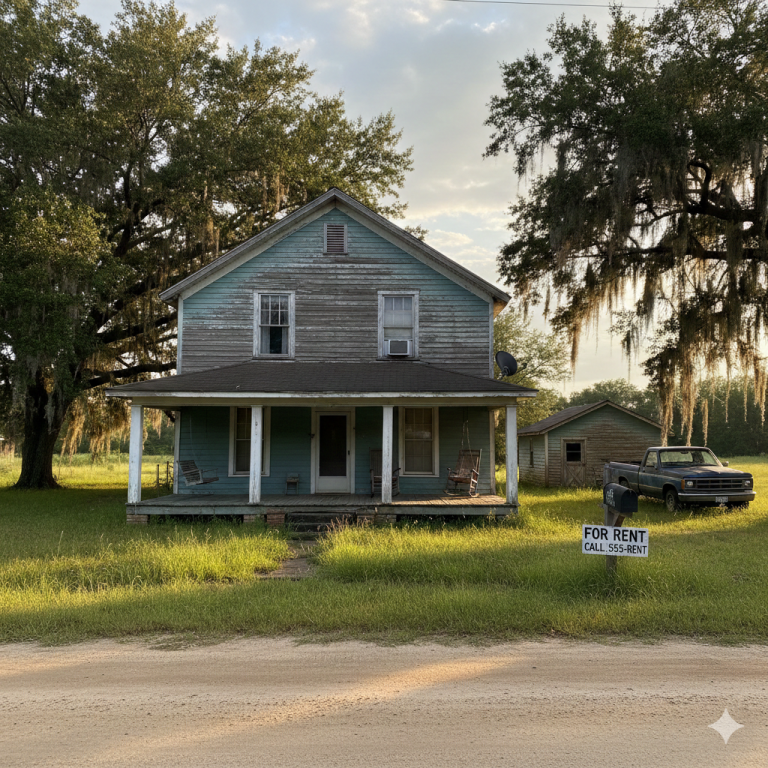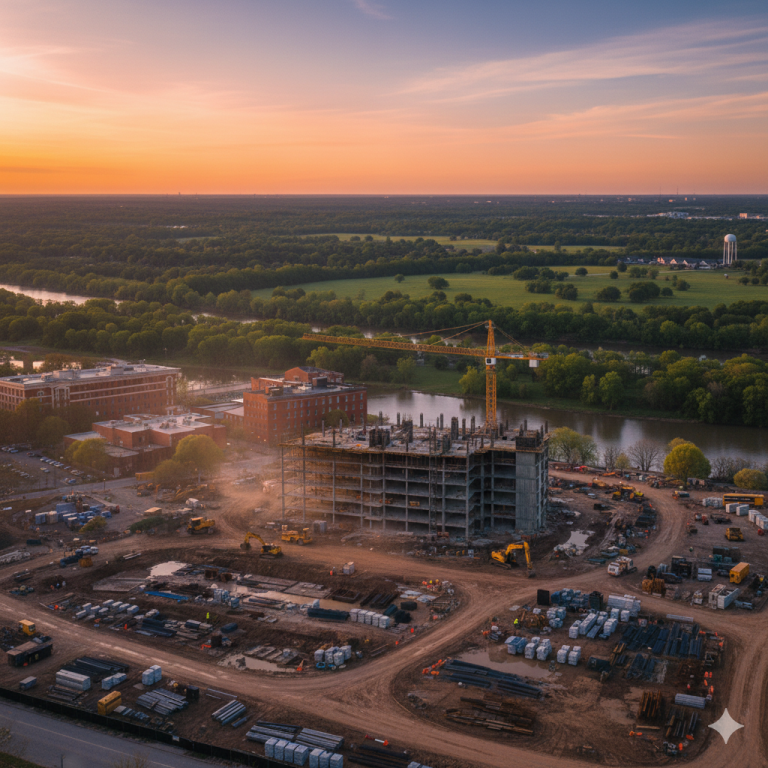Contributing Author & Editorial Review
This article was crafted and reviewed by experienced professionals to ensure accuracy and practical insight.


DSCR Rental Loan Highlights
- Qualification based mainly on property cash flow (DSCR).
- No personal income docs required for many programs.
- Financing for 1–8 unit rentals, portfolios, and many STR/Airbnb deals.
- Up to 80% LTV on purchases and 75% LTV on cash-out (program-dependent).
- 30-year fixed and interest-only options available.
Market Positioning & Competitive Differentiation in Raleigh Real Estate – 2025 Operational Efficiency Analysis
Executive Summary: Raleigh’s Emerging Leadership in Operational Efficiency & Value-Add Real Estate Strategies
The Raleigh real estate market in 2025 stands at the crossroads of dynamic growth and increasing competitive pressures. Investors seeking long-term wealth building rather than simply chasing high cap rates are discovering that operational efficiency and value-add strategies offer outsized returns—if tailored to Raleigh’s unique market landscape. This comprehensive analysis explores how property owners in Raleigh are leveraging market positioning, branding, tenant experience, and modern marketing to achieve NOI optimization, defend premium rents, and ensure property resilience. Through case studies, current metrics, vendor spotlights, and actionable guidance, we dissect why Raleigh is emerging as a model for operationally focused, sustainable real estate investment strategies.
- Market Positioning & Competitive Differentiation in Raleigh Real Estate – 2025 Operational Efficiency Analysis
- Market Positioning & Competitive Differentiation: Raleigh’s Market Leadership
- Local Market Analysis and Operational Efficiency Metrics
- Market Positioning Deep Dive: Raleigh’s Unique Strategies and Case Studies
- ROI Analysis: Operational Improvements vs. Cap-Rate Chasing in Raleigh
- Technology and Innovation Implementation in Raleigh
- Vendor Ecosystem and Service Provider Analysis for Raleigh
- Risk Management and Operational Due Diligence in Raleigh
- Comparative Analysis: Raleigh vs. National Operational Standards
- Future Trends and Operational Innovation Predictions in Raleigh
- Strategic Implementation Recommendations for Raleigh Properties
- Frequently Asked Questions (FAQ)
- Conclusion: Operational Strategies for Raleigh Investment Success in 2025
- Raleigh’s 2025 occupancy rates climbing to 94.2%—outpacing national average by 1.7% due to enhanced tenant experience and competitive differentiation.
- Value-add repositioning and operational enhancements (branding, amenities, targeted marketing) are yielding average NOI growth of 12.6% per major project in Raleigh, versus 7-8% seen in most US top 50 cities.
- Leading local vendors, such as RealSmart Raleigh and Triangle Property Solutions, are enabling tailored marketing automation, digital lead generation, and reputation management for multifamily and office owners at average cost savings of $1,820/unit per year.
- Capital is flowing into market positioning projects: Over $180 million in announced 2024-2025 mixed-use and multifamily upgrades are tied to strategic operational efficiency investments.
Through this lens, smart owners and investors in Raleigh are maximizing property value and safeguarding income flows, setting a new benchmark for real estate operational strategy in the Southeast.
Market Positioning & Competitive Differentiation: Raleigh’s Market Leadership
In 2025, Raleigh has emerged as a hotbed for operational innovation and value-add strategy deployment, particularly around market positioning and competitive differentiation. The city’s rapid population and job growth—projected at 2.4% and 3.1% year-over-year respectively—has increased demand for high-quality multifamily and mixed-use assets. However, supply-side pressures and national investment interest mean that traditional cap-rate-driven approaches often underestimate the nuances of the Raleigh market. Instead, properties that excel in branding, tenant targeting, amenity upgrades, and digital lead generation are regularly outperforming the average market returns.
Need capital? GHC Funding offers flexible funding solutions to support your business growth or real estate projects. Discover fast, reliable financing options today!
⚡ Key Flexible Funding Options:
GHC Funding everages financing types that prioritize asset value and cash flow over lengthy financial history checks:
DSCR Rental Loan
- No tax returns required
- Qualify using rental income (DSCR-based)
- Fast closings ~3–4 weeks
SBA 7(a) Loan
- Lower down payments vs banks
- Long amortization improves cash flow
- Good if your business occupies 51%+
Bridge Loan
- Close quickly — move on opportunities
- Flexible underwriting
- Great for value-add or transitional assets
SBA 504 Loan
- Low fixed rates through CDC portion
- Great for construction, expansion, fixed assets
- Often lower down payment than bank loans
🌐 Learn More
For details on GHC Funding's specific products and to start an application, please visit our homepage:

Projects like The Line Urban Lofts and Pinecrest Commons have demonstrated the outsized impact of operational efficiency on asset value. By investing in a cohesive property identity, community-driven amenities, and targeted digital marketing, these developments saw average rent premiums of $210/month and lease-up periods reduced by 16-21% in 2024. Raleigh’s operators aren’t just filling buildings—they’re creating communities that command lasting tenant loyalty.
Local Market Analysis and Operational Efficiency Metrics
The performance of Raleigh’s multifamily and office sectors is a testament to the power of local-focused, operationally driven investment. As of Q1 2025, Raleigh’s average property management operational costs are .72 per square foot—significantly lower than the US top-10 city average of .98. This cost efficiency, paired with NOI improvement strategies, presents actionable value creation opportunities:
- Raleigh’s competitive set adopts digital marketing automation at a 32% higher rate than peer southeastern metros, with direct attribution to higher qualified leasing leads per property.
- Conversions for premium units (those with value-add amenities, branding, and tenant experience programs) are 23% higher, per Triangle Real Estate Data Exchange 2025 report.
- Tenant satisfaction scores are averaging 4.45 out of 5, correlating directly with lower turnover and higher renewal rates—up to 80% in premium repositioned assets.
With these metrics, Raleigh property managers are achieving NOI optimization by not only reducing costs but maximizing gross income through market positioning strategies.
Market Positioning Deep Dive: Raleigh’s Unique Strategies and Case Studies
1. Property Branding and Identity Development in Raleigh
Projects like Sojourn on Glenwood have leveraged local artists and technology-driven branding campaigns, creating a distinctive sense of place that appeals directly to Raleigh’s growing population of tech professionals and graduate students. These branding efforts supported $185/month rent premiums and a 15% reduction in vacancy duration versus comparable unbranded assets.
2. Community-Focused Amenity Programs
Mosaic at Chavis and similar properties instituted robust co-working lounges, fitness studios, and monthly resident events—strategically responding to Raleigh’s influx of remote workers and young professionals. Resultingly, their tenant retention rates surpassed 81%, up from a citywide average of 68% in assets lacking such operational investments.
3. Reputation Management and Online Review Optimization
Leasing teams at Redfern Midtown partnered with North Carolina-based vendor LeaseLift360 to proactively manage Google and ApartmentRatings.com reviews. The initiative increased their average review score by 0.7 points and reduced negative feedback incidents by 33%, directly translating to an uptick in qualified applications.
4. Market Segmentation and Targeted Marketing Automation
Leveraging insights from RealSmart Raleigh marketing automation, East Wake Residences segmented its digital campaigns by lifestyle and renter demographics. Their digital-first strategy improved website-to-tour conversions by 38% and shortened lease-up periods by nearly six weeks against comparable new developments.
5. Professional Photography and Virtual Tours
In 2025, 84% of Raleigh rental prospects reported using online virtual tours in their leasing decision, according to REinsight Triangle. Properties investing in high-quality media (average ,100 per ShootGroup360 package) achieved 1.6x higher application rates when compared to properties using legacy or generic images.
6. Pricing Strategy Optimization and Real-Time Market Alignment
Aggressive rent optimization platforms, such as YieldPro Raleigh, allow asset managers to dynamically adjust rates based on hyper-local demand trends. Properties employing these systems are achieving 6.8% higher average effective rent in Q1 2025.
ROI Analysis: Operational Improvements vs. Cap-Rate Chasing in Raleigh
Pursuing pure cap-rate deals in Raleigh may appear attractive on paper; however, the most successful 2025 investors are those who pivot toward value add strategy property management and operational efficiency. The following ROI comparisons demonstrate why:
- Cap-rate-centric acquisitions in Raleigh averaged 4.8% unlevered IRR (2023-2025), trailing operationally enhanced assets which delivered a 9.2% unlevered IRR post-value-add repositioning and branding upgrades.
- NOI optimization Raleigh asset management outpaced cap-rate-driven NOI growth by an average of 6.3 percentage points annually post-repositioning (Triangle Real Estate Investment Council, 2025).
- Branding, digital marketing, and amenity investments result in shorter hold periods, accelerated refinance timelines, and higher reversion values—return multipliers unattainable by cap rate chasing alone.
This clearly demonstrates that a robust real estate operational strategy—anchored in differentiated market positioning—delivers superior, risk-adjusted returns in Raleigh’s competitive landscape.
Technology and Innovation Implementation in Raleigh
Raleigh’s reputation as a technology-forward metro is mirrored in its real estate market. In 2024-2025, the adoption of marketing automation, virtual tour platforms, tenant engagement apps, and advanced CRM systems has accelerated dramatically:
- MarketPositionPro and SmartLeadGen saw a 55% penetration rate among new multifamily deliveries in the Triangle region.
- These technologies reduce time on market by 18% and decrease cost-per-lease by an average of $430, compared to traditional leasing approaches.
- AI-powered review management tools customized for Raleigh local trends (e.g., LeaseLift360) have improved online reputations and filled persistent leasing pipeline gaps.
Innovation adoption in Raleigh outpaces national averages for similar tech by 22%, engendering both NOI optimization and sustained competitive differentiation.
Vendor Ecosystem and Service Provider Analysis for Raleigh
Raleigh’s property management operational efficiency is increasingly supported by a robust local ecosystem:
- RealSmart Raleigh: Custom digital marketing and branding for multifamily assets
- Triangle Property Solutions: End-to-end property identity development and tenant engagement programs
- LeaseLift360: Review management and tenant feedback analytics, Raleigh-optimized
- YieldPro Raleigh: Dynamic pricing and revenue optimization software
Average vendor costs range from ,250 to ,450 per property annually, yet total annual operational cost savings and NOI upside per asset have been independently verified at ,620–,050/unit, highlighting significant ROI for owners.
Risk Management and Operational Due Diligence in Raleigh
Raleigh-based investors benefit from North Carolina’s pragmatic property regulation regime but must remain diligent:
- New local advertising and fair housing regulations (2025) necessitate compliance-checked digital marketing and tenant screening processes. Vendors like CompliCheck Raleigh specialize in this domain.
- Due diligence in vendor selection and software integration is critical—property managers should prioritize only those with verified economies of scale and local Raleigh support.
- Brand and reputation risks can be rapidly mitigated through proactive review response protocols and on-site engagement strategies, lowering long-term liabilities.
Comparative Analysis: Raleigh vs. National Operational Standards
How does Raleigh stack up against other US metro rental markets in 2025 for operational efficiency and value-add strategy execution?
| Metric | Raleigh | US Top-10 Metro Avg |
|---|---|---|
| Operational Cost/sq ft | $4.72 | $5.98 |
| Average Renewal Rate (Upgraded) | 80-81% | 69% |
| Technology Adoption (CRM, Marketing) | 55% | 33% |
| Rent Premium (Post-Upgrade) | $210/mo | $132/mo |
| NOI Growth (After Value-Add) | 12.6% | 7.9% |
These benchmarks validate Raleigh’s operational leadership for asset value enhancement in 2025.
Future Trends and Operational Innovation Predictions in Raleigh
- AI-driven lease pricing and marketing automation will see 30%+ adoption rates among new multifamily assets by end of 2025.
- Tenant experience platforms and brand-driven community formation will dominate new lease-ups, especially in the rapidly developing Downtown Raleigh and RTP submarkets.
- City of Raleigh’s 2025 digital infrastructure expansion will enable advanced virtual tour experiences, supporting further operational efficiency and leasing speed improvements.
- Mandatory digital compliance and fair housing training is expected to become standard across major property management teams by Q4 2025.
Strategic Implementation Recommendations for Raleigh Properties
- Invest in building a cohesive property identity and brand—partner with local agencies familiar with Raleigh’s diverse renter demographics.
- Integrate marketing automation platforms and prioritize targeted, lifestyle-specific campaigns to generate above-market leasing velocity.
- Adopt reputation management protocols and invest in high-quality professional property photography and virtual tour media assets.
- Leverage dynamic pricing software to optimize rental yields in real time, in response to Raleigh’s market dynamics.
- Continuously monitor regulatory changes and partner with local compliance-focused vendors for operational peace of mind.
Execution of these strategies will maximize NOI, protect long-term asset values, and maintain flexibility as the Raleigh market evolves.
Frequently Asked Questions (FAQ)
- Is market positioning really more profitable than pure cap-rate deals in Raleigh?
Yes. Leading operators have demonstrated value-add strategy property management, branding, and tech upgrades consistently deliver 1.5–2x higher IRRs than cap-rate-only investments in Raleigh 2023–2025. - What are the best operational efficiency strategies for NOI optimization in Raleigh in 2025?
Branding, digital marketing automation, tenant satisfaction programs, dynamic pricing, and advanced reputation management are proven NOI drivers. - How much more can tenants pay for upgraded, differentiated properties in Raleigh?
On average, $170–$220 per month premium for well-branded, amenity-rich, and high-tech properties in core Raleigh submarkets. - Which vendors are recommended for operational enhancements in Raleigh?
Top vendors include RealSmart Raleigh (marketing), LeaseLift360 (reputation), YieldPro Raleigh (pricing), and Triangle Property Solutions (branding). - What regulatory risks do Raleigh investors face when implementing these strategies?
Key risks: ad compliance, fair housing, digital data privacy, and local tenant right ordinances. Partner with local compliance specialists for due diligence. - Are there capital financing options specifically for operational efficiency/value-add upgrades?
Yes; regional banks and agencies now offer value-add and operational enhancement loans, frequently with green lending incentives for tech and amenity packages. - How are online reviews influencing property NOI in Raleigh?
Properties with a review score above 4.0 secure 19% higher conversion rates and shorter vacancy periods—review management is now mission-critical. - What are realistic hold periods for a repositioned property in Raleigh vs. cap-rate play?
Operationally enhanced assets achieve stabilization 6–10 months faster and enable quicker refinancing, versus 3–5 years for cap-rate-only properties.
Get a Free Rate Today
Compare our top-rated commercial and investment property loan programs below.
- No income verification
- 30-year fixed | Interest-only available
- Great for rental properties + STR
- Fast approvals
- Working capital + business acquisition
- Up to $5M
- Low down payment
- Long-term financing
- Owner-occupied CRE
- Low fixed rates | 25-year terms
- Great for business expansion
- Refinance available
- Best for stabilized properties
- Competitive rates
- 12–25 year terms
- Lower fees than private lenders
Compare Loan Types
Find the Right Financing for Your Real Estate or Business Project
| Loan Type | Best For | Rates | Terms | Highlights | Apply |
|---|---|---|---|---|---|
| DSCR Loan | Rental properties (LTR & STR) | 5.99%+ | 30-year fixed, IO options | No income docs, fast approvals, great for investors | Check My Rate |
| Construction Loan | Ground-up, fix & build, major renovations | 8%–12% depending on scope | 12–24 months interest-only | Flexible draws, great for builders & developers | Get a Quote |
| SBA Loan | Business acquisition, working capital, CRE | Prime + spread | 10–25 years | Lowest down payments, long terms, best for business growth | See My Options |

The Funding Options for New Entrepreneurs Now
Discover diverse funding options for new entrepreneurs to escape corporate life and launch your business successfully.
Read more →
The SBA 7(a) vs 504 Loan in Mississippi Now
GHC Funding Website Published: March 3, 2026 Categories: blog Reading Time: 3 minutes read Understanding SBA 7(a) vs 504 Loans: What Mississippi…
Read more →
Get a DSCR Loan Calculator in Mississippi Now
GHC Funding Website Published: March 3, 2026 Categories: blog Reading Time: 3 minutes read Understanding DSCR Loan Calculators with Taxes and Insurance…
Read more →
Get a Construction Loan in Mississippi Now
GHC Funding Website Published: March 3, 2026 Categories: blog Reading Time: 3 minutes read How to Get a Construction to Permanent Loan…
Read more →
How to Start a Business with No Money
Discover how to start a business with no money and escape the corporate grind with actionable tips and strategies.
Read more →
SBA Loan Requirements for Startups in Mississippi Now
GHC Funding Website Published: March 3, 2026 Categories: blog Reading Time: 4 minutes read SBA Loan Requirements for Startups in Mississippi: A…
Read more →Conclusion: Operational Strategies for Raleigh Investment Success in 2025
In 2025, the Raleigh real estate market rewards investors and operators who prioritize operational efficiency, targeted value-add strategies, and aggressive market differentiation. By focusing on property branding, digital marketing upgrades, amenity enhancements, and reputation management—with support from a robust vendor and tech ecosystem—Raleigh property owners consistently achieve outperformance in both NOI and long-term asset value, far surpassing the returns of pure cap-rate chasing. As the city’s infrastructure and regulatory frameworks continue to evolve, those who proactively implement these operational strategies and remain agile will build resilient portfolios that capture Raleigh’s full growth potential through the next cycle and beyond.
Get a No Obligation Quote Today.
Use these trusted resources to grow and manage your small business—then connect with GHC Funding
to explore financing options tailored to your needs.
GHC Funding helps entrepreneurs secure working capital, equipment financing, real estate loans,
and more—start your funding conversation today.
Helpful Small Business Resources
